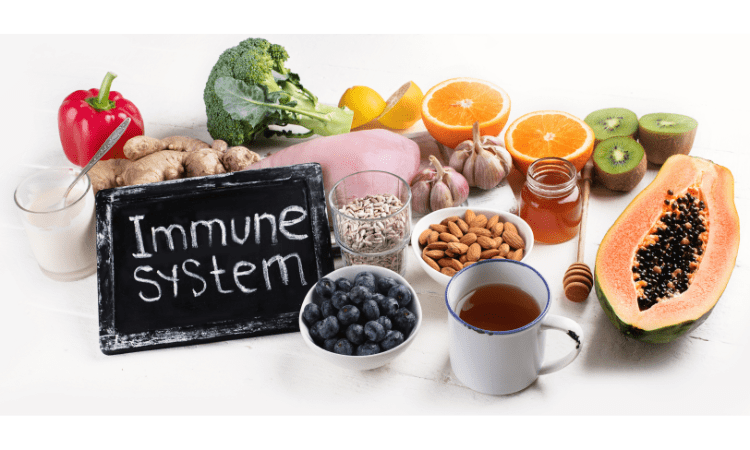
Nutrition is an important key to good health. What we eat and how much we eat are two important factors in determining how healthy our bodies are.
The food we eat provides us with energy and nutrients, which help our bodies function properly. If we do not get enough nutrients from the foods we eat, our bodies may not work as well as they should. Our bodies also need water to maintain normal bodily functions. When there is not enough water in our systems, dehydration can occur which can lead to many health problems.
Nutritionists have found that certain types of foods should be eaten more often than others in order to promote good health and prevent disease. The following information will help you understand what types of foods are best for your body and why they are important for maintaining good health.
In this article, we will discuss some useful information about the impact of nutrition on your health.
Why nutrition is important to health

Nutrition is one of the most important factors affecting your health. It can impact your energy levels, mood, and sleep, as well as your ability to recover from illness and injury. Healthy food choices can help you avoid chronic diseases such as diabetes or heart disease and give you more energy to enjoy life.
There are two main types of nutrients in food: macronutrients (carbohydrates, fats, and proteins) and micronutrients (vitamins and minerals). Macronutrients provide energy for our bodies while micronutrients help to keep us healthy by helping our bodies function properly.
A healthy diet should contain a variety of foods from each of the five major food groups: fruits, vegetables, grains, dairy products, and meat alternatives (such as legumes). In addition to these groups, it’s important to get enough protein sources from animal sources such as fish or chicken; carbohydrates from whole grains such as oats or brown rice; fats from nuts; dairy products such as milk or yogurt; and legumes like lentils or beans.
Nutrition impacts on health
Increases energy levels

Nourishment is the fuel that keeps our bodies running. It provides us with the energy to get through our days, and it helps us maintain healthy, vibrant cells that are capable of doing all kinds of amazing things.
One of the best ways to increase your energy levels is by eating more complex carbohydrates, like whole grains and fruits. These foods are rich in vitamins, minerals and fiber, all of which help boost your metabolism and give you a boost of energy throughout the day. We need to give our bodies the right kind of fuel in order to have enough energy to live life to its fullest. That’s why nourishment is so important.
Maintains good heart health

The main function of the heart is to pump blood throughout the body. It is a muscle that contracts and relaxes, pumping blood through your veins and arteries. A healthy heart has an efficient system to regulate how much blood flows through it at any given time.
The nutrients in a well-balanced diet help keep the heart healthy by making sure you have enough vitamins, minerals, and other nutrients to support good health. Vitamins C and E are antioxidants that help protect cells from damage caused by free radicals (unstable molecules). Minerals such as calcium, magnesium, and potassium help regulate blood pressure and prevent blood clots. Omega-3 fatty acids help lower triglycerides (another type of fat found in your blood) while increasing HDL cholesterol (the “good” kind).
A diet that consists of fresh fruits and vegetables, whole grains, lean protein sources, and healthy fats can help lower cholesterol levels, blood pressure, and inflammation. This type of diet also helps to keep your heart healthy by lowering your risk of developing heart disease.
Improves immune system

Nourishment plays a key role in supporting the immune system. A well-nourished body is better able to fight off disease and infection, and it can heal from wounds more quickly.
The immune system is made up of two parts: the innate immune system and the adaptive immune system. The innate immune system is the first line of defense against invading microorganisms and includes physical barriers such as skin, mucous membranes, and cilia that help keep pathogens out. If these methods fail, then the adaptive immune system kicks in to identify specific pathogens and produce antibodies to destroy them. The immune system is a complex network that protects the body from disease-causing bacteria, viruses, and fungi. It also helps fight off cancer cells. The nutrients found in fruits and vegetables help boost our immune systems and protect us from harmful substances in the air we breathe and the food we eat.
Reduces the effect of aging

Nourishment plays a crucial role in the aging process. Nourishment can reduce the effect of aging by slowing down the rate of cellular degeneration and increasing the production of new cells. Aging is a natural process that occurs in all organisms. It is the gradual deterioration of function and structure that affects every system in our body. The most common signs of aging are wrinkles, a loss of elasticity in the skin, reduced muscle mass and strength, joint pain, and a decline in cognitive function.
To reduce the effect of aging on your body, you should make sure that you’re consuming at least one serving of leafy green vegetables every day. Leafy greens contain high levels of vitamins A and C, as well as lutein and zeaxanthin (carotenoids), which protect against macular degeneration and cataracts.
Controls diabetes

Diabetes is a disease that affects the way your body processes sugar. Your body needs sugar to function, but when you have diabetes, too much sugar stays in your blood instead of being used by your cells. This can lead to serious health problems.
Luckily, there are plenty of things you can do to help manage or prevent diabetes. One of these is making sure you eat right. The right foods can help keep your blood sugar levels under control and help prevent type 2 diabetes in the long term. If you’re worried about diabetes or want to reduce your chances of developing it, here’s what you should know about nourishment and its impact on our health. A healthy diet is high in fiber, whole grains, fruits, and vegetables, and low in saturated fats, sodium, and sugar. A healthy diet also includes low-fat or fat-free dairy foods. You should also choose lean meats and poultry without skin. If you have diabetes, you need to follow a special diet designed to keep your blood sugar levels as close to normal as possible.
Improves well being

Nutrition plays an important role in our lives. It can help us feel better and improve our overall health.
Nutrition is the study of food and its impact on our health. It helps us understand how food affects the body, such as how it affects energy, growth, and disease.
The nutrients that we get from food are vitamins, minerals, and water. These nutrients are important for keeping our bodies healthy and functioning properly. The food we eat provides us with the nutrients we need to stay healthy and active, and it also helps us feel energized and alert. Eating balanced meals that include a variety of foods can help prevent disease, promote weight loss, and improve overall well-being.
Living longer life

Living longer is a desire that many of us have. Nutrition is the process of consuming food and nutrients to maintain your body’s health. A healthy diet can help you live longer, look younger, and feel more energetic. The problem, though, is that many of us don’t know how to get there. There are many things that contribute to our overall health, but when it comes down to it, nourishment is the biggest factor.
Nutrition is often broken down into three categories: macronutrients (protein, carbohydrates, and fats), micronutrients (vitamins and minerals), and water.
To live longer, you need to eat a balanced diet that includes all three of these groups in the right proportions. If you eat too much of one group over another, your body will not be able to process it properly and you could be putting yourself at risk for heart disease or diabetes. A balanced diet also helps keep your immune system strong and can help prevent diseases like cancer from developing in your body.
Conclusion
In conclusion, nutrition is a vital part of our health. It is important to learn about what we eat, how much we eat, and how often we eat. Nutrition affects our bodies in many ways. It can affect the way we look, the way we feel, and even how long we live. Nourishment is important for everyone, from athletes to business people to stay-at-home parents. With proper nutrition, you will be able to live a long and healthy life with minimal medical problems. Knowing what nutrients your body needs will help keep you healthy and fit throughout your life.











